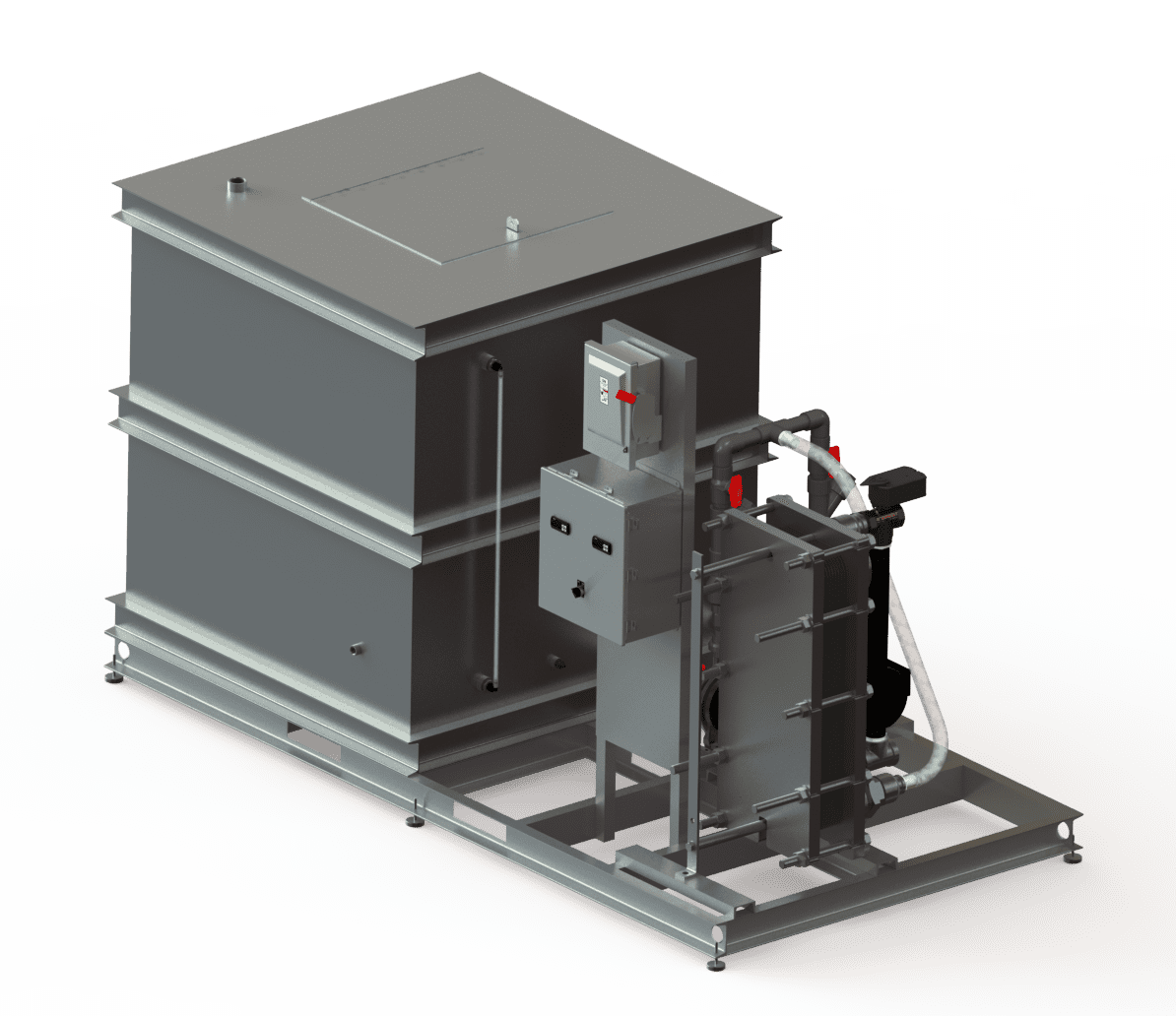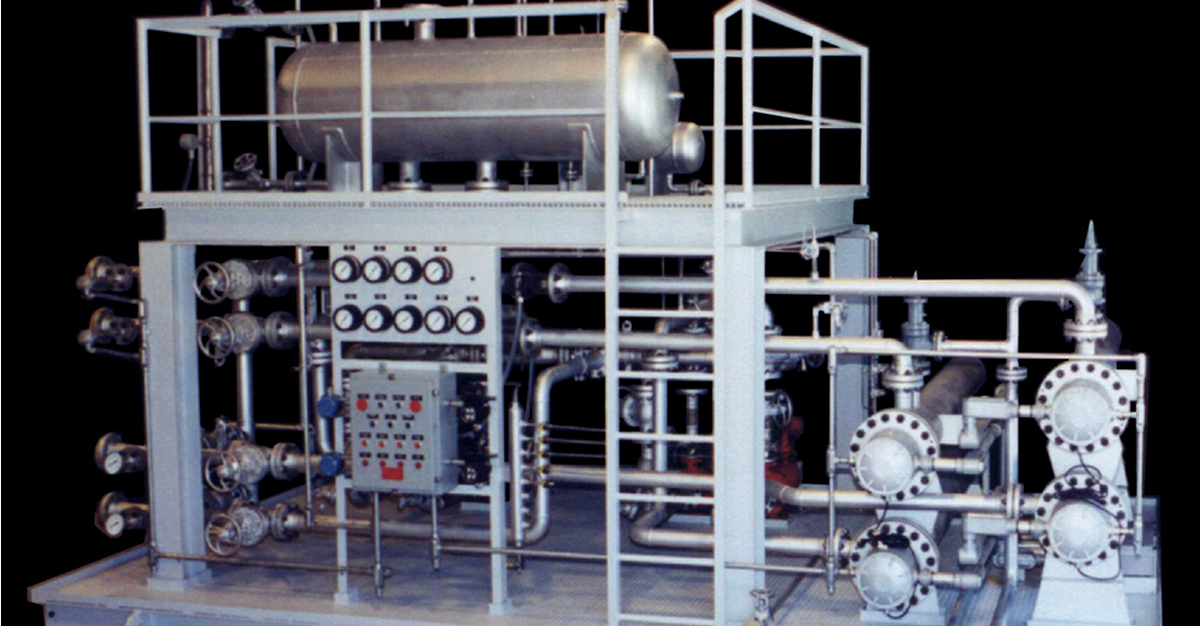The Role of Heat Transfer Equipments in Sustainable Energy Solutions for the Future
Heat transfer systems are necessary in the pursuit for lasting energy services. They maximize thermal power monitoring, improving the effectiveness of sustainable modern technologies. By using devices like convection, radiation, and transmission, these systems decrease energy losses. Their function in solar thermal and geothermal applications is particularly substantial. As technologies arise, the capacity for more innovations increases essential concerns regarding future power techniques. What growths will form the landscape of sustainable energy?
Understanding Heat Transfer Systems

The Importance of Thermal Energy Management
Reliable thermal energy management is important for optimizing energy efficiency and minimizing waste in different systems. By regulating temperature level and maximizing Heat transfer processes, organizations can noticeably minimize power consumption and functional expenses. Efficient administration entails the application of innovative innovations and practices that check and regulate thermal problems within systems, ensuring that energy resources are used efficiently. Additionally, appropriate thermal energy administration adds to minimizing greenhouse gas exhausts, straightening with international sustainability objectives. It additionally improves system reliability and performance, bring about improved item high quality and longer equipment life expectancy. Ultimately, focusing on thermal energy management is a crucial step towards creating more lasting energy services and promoting a liable method to power usage in commercial and residential contexts.
Applications of Heat Transfer in Renewable Resource
While numerous renewable resource resources assure sustainability, the reliable application of Heat transfer plays an important function in their effectiveness. In wind power systems, Heat transfer is utilized for wind turbine component air conditioning, enhancing performance and durability. Geothermal energy counts on effective Heat exchange in between the earth's subsurface and the fluid flowing in the system, taking full advantage of power extraction. Biomass energy processes also take advantage of Heat transfer, as it assists in converting organic products right into useful fuel through pyrolysis and gasification. Additionally, in hydropower, maintaining optimal temperatures in reservoirs can improve energy outcome. Each of these applications shows the vital value of Heat transfer systems in boosting renewable resource modern technologies, inevitably contributing to a more lasting power future.
Enhancing Solar Thermal Power Effectiveness
As solar thermal power systems continue to develop, improving their effectiveness has become crucial for making the most of power output. Advances in Heat transfer innovations, such as enhanced thermal storage space products and ingenious Heat exchangers, play a considerable duty in enhancing efficiency. By utilizing innovative products that have superior thermal conductivity, systems can transfer and catch Heat more properly. In addition, integrating radar that adhere to the sunlight's path warranties that collectors receive suitable solar exposure throughout the day. Making use of nanotechnology in solar absorbers can better enhance energy absorption prices. Including computerized control systems assists manage temperatures and manage power circulation successfully, leading to reduced losses and enhanced overall system efficiency. These enhancements lead the way for even more sustainable solar thermal power remedies in the future.
Geothermal Heating: A Sustainable Service
Geothermal home heating provides a viable option for sustainable energy, providing significant ecological advantages through lowered greenhouse gas exhausts. Its performance and cost-effectiveness make it an attractive option to conventional heater. Challenges related to application must be resolved to optimize its possible influence.
Ecological Benefits of Geothermal
Although typical home heating approaches contribute considerably to greenhouse gas discharges, geothermal heating offers a compelling alternative that reduces ecological effect. By taking advantage of the Planet's interior Heat, geothermal systems utilize a sustainable energy resource, considerably decreasing dependence on nonrenewable fuel sources. This method generates minimal carbon exhausts, making it a cleaner alternative for household and industrial heating. In addition, geothermal systems advertise energy efficiency, as they call for less energy compared to traditional furnace. DVS Heat Transfer Systems. The use of geothermal power additionally assists in minimizing air pollution, improving local air quality and public health. As a lasting service, geothermal heating sustains environment change mitigation initiatives, positioning itself as a vital component in the change towards a greener future
Effectiveness and Cost-Effectiveness
Just how does geothermal home heating determine up in terms of efficiency and cost-effectiveness contrasted to conventional heating unit? Geothermal heating shows superior performance, usually accomplishing a coefficient of efficiency (COP) of 3 to 5, implying it generates three to five devices of Heat for every single unit of electrical energy eaten. This efficiency equates right into lower operating costs, particularly in areas with stable geothermal resources. First installation prices can be greater than traditional systems; nevertheless, long-lasting savings on energy bills and minimized upkeep costs can counter these upfront financial investments. Additionally, lots of federal governments incentivize geothermal systems through rebates and tax credit scores, enhancing their cost-effectiveness. Overall, geothermal heating emerges as a sustainable and economically practical alternative to more conventional heating solutions.
Implementation Difficulties and Solutions
Various difficulties can hinder the widespread execution of geothermal home heating systems, regardless of their clear advantages as a sustainable power service. High preliminary installation prices usually prevent house owners and investors, making financing a substantial barrier. Furthermore, the geographical constraints of ideal geothermal websites limit access in specific regions. Neighborhood laws and permitting procedures can also complicate project growth, resulting in delays. Furthermore, public understanding and understanding of geothermal systems remain reduced, preventing acceptance. To attend to these difficulties, targeted education and learning campaigns can enhance public expertise, while federal government motivations can ease financial burdens. Collaborating with neighborhood authorities to improve policies may assist in smoother task approvals, inevitably promoting the fostering of geothermal heating as a sensible, sustainable power choice.
Developments in Heat Transfer Technologies
Innovations in Heat transfer modern technologies play an essential duty in improving energy effectiveness and sustainability. Advanced Heat exchangers and stage change products are at the forefront of these advancements, providing considerable renovations in thermal administration. These technologies not only optimize power use yet additionally contribute to decreasing click this environmental impact in numerous applications.
Advanced Heat Exchangers
Advanced Heat exchangers play an essential function in boosting power effectiveness across various applications in lasting power remedies. These gadgets promote the transfer of Heat between 2 or even more liquids, significantly decreasing power usage in procedures such as commercial home heating, cooling, and power generation. Developments in products and design, such as using nanofluids and compact setups, have led to boosted thermal efficiency and lowered size needs. Furthermore, advancements in electronic tracking and control systems permit maximized operation, more enhancing performance. By reducing waste Heat and optimizing energy recuperation, advanced Heat exchangers add to decrease carbon footprints and support the shift toward eco pleasant innovations. Their continued advancement is crucial for accomplishing international energy sustainability goals.
Phase Adjustment Products
The integration of phase modification products (PCMs) right into Heat transfer modern technologies stands for a significant innovation in power administration and performance. PCMs take in and launch thermal energy during their stage changes, enabling reliable temperature guideline linked here in building products and power systems. By saving excess Heat throughout optimal durations and releasing it when demand boosts, PCMs add to pack moving and energy conservation - DVS Heat Transfer Systems. This capability improves the performance of renewable resource systems, particularly in solar thermal applications. Furthermore, PCMs can enhance the thermal convenience of indoor atmospheres, minimizing dependence on conventional heating and cooling techniques. As technologies in PCM solutions remain to arise, their duty in sustainable energy remedies is positioned to expand, using encouraging avenues for future research and application

Future Leads for Heat Transfer in Lasting Energy
As the demand for sustainable power services remains to rise, the function of Heat transfer systems is ending up being progressively critical fit future technologies. Technologies in styles and materials are expected to improve efficiency in Heat transfer, lowering power losses in numerous applications. The combination of advanced thermal storage systems, such as phase change products and thermochemical storage space, will enable far better administration of energy sources. Research study right into nanofluids and biomimetic Heat exchangers might even more maximize thermal efficiency. Moreover, the fostering of smart innovations will certainly enable real-time tracking and flexible control of Heat transfer procedures. These innovations are positioned to considerably contribute to the general efficiency and sustainability of energy systems, leading the way for a much more energy-efficient future.
Frequently Asked Concerns
How Can Individuals Apply Heat Transfer Systems at Home?

People can apply Heat transfer systems in the house by setting up energy-efficient appliances, using radiant heat, and maximizing insulation. These procedures boost energy efficiency, minimize prices, and advertise sustainable techniques in household atmospheres.

What Are the Costs Related To Setting Up Heat Transfer Equipments?
The expenses related to setting up Heat transfer systems differ extensively, usually including equipment, setup labor, and upkeep. Factors such as system type, home dimension, and neighborhood laws considerably affect the general expense entailed.
Are There Federal Government Incentives for Heat Transfer System Installations?
Federal government motivations for Heat transfer system installments differ by area and can consist of tax obligation grants, rebates, and debts. These financial benefits aim to encourage fostering, eventually advertising power performance and decreasing environmental impact within neighborhoods.
Exactly How Do Heat Transfer Solutions Impact Energy Costs?
Heat transfer systems especially influence energy expenses by enhancing power efficiency. By enhancing the transfer of Heat, these systems decrease energy usage, resulting in reduced energy expenses and producing a much more lasting method to power monitoring.
What Upkeep Is Required for Heat Transfer Systems?
Upkeep for Heat transfer systems consists of regular examinations, cleaning of parts, inspecting liquid degrees, making certain proper insulation, and changing worn components. These tasks assist maintain efficiency, stop malfunctions, and prolong the system's operational life expectancy.
These systems help with the motion of thermal power from one tool to another, enabling the transfer of Heat for heating, cooling, or energy generation functions. Geothermal power counts on effective Heat exchange between the planet's subsurface and the fluid distributing in the system, maximizing energy extraction. Furthermore, geothermal systems advertise energy effectiveness, as they call for much less energy contrasted to traditional heating systems. Advanced Heat exchangers play an essential function Get More Information in boosting energy performance across various applications in sustainable energy services. Heat transfer systems especially influence energy expenses by enhancing energy effectiveness.